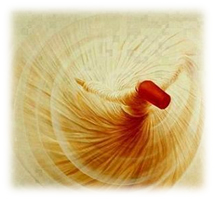
Poison is in everything, and no thing is without poison. The dosage makes it either a poison or a remedy. — Paracelsus
Sufism is without doubt a very beautiful path. It is the mystical outshoot of Islam, but its essence is far beyond any religious tradition – it is universal. Though it is commonly considered to be the way of the heart, many of its esoteric schools also developed very elaborate methods of self-discipline and meditation that aimed at the awakening of consciousness. Gurdjieff, for instance, whose path was more orientated towards the evolution of consciousness, used various Sufi concepts and techniques to create his own teaching.
Because there is such a diversity of sects and schools in Sufism, it is difficult to draw a clear-cut picture of what it is. Rather than going into detail in this article, we will focus on the general energy of the Sufi path and its impact on the collective spiritual consciousness. Sufism is one of the only paths that is compatible with the realization of the soul. To put it simply – there is a true soul in Sufism. This is not only because it is a path of love and devotion. There are many paths of devotion – for instance, in Hinduism or mystical streams of Christianity – that do not contain the energy of the soul. Contrary to naïve beliefs, the common concept of devotion does not point to the soul; it is the devotion of ego. Indeed, true devotion from the soul to god is far, far deeper than any of these simplistic and sentimental notions would lead us to believe.
Sufism is a path of the soul not because it is using the energy of devotion, but because it is actively engaged in uncovering the mystery of our individual essence, which in their terminology is called ‘the lover’. This does not mean that Sufism has complete knowledge of the soul or a holistic vision of her awakening, but rather that it points to the awakening of her essence. From the viewpoint of our teaching, the aspect of the soul that is most lacking in Sufism is being. The awakening of being requires long periods of sitting meditation, and even though sitting practice is present in some Sufi schools, it is more directed towards the contemplation of the divine or general work with awareness. A Sufi adept does not sit in order to become rooted in being, as a Zen or Taoist practitioner would. As a result, his connection to the source is very weak.
Generally speaking, the Sufi path predominantly involves the development of two centers: awareness and the heart. We use the term awareness rather than consciousness because most Sufi techniques do not point towards surrender into universal consciousness, which is necessary to awaken the deeper state of pure consciousness. Awareness is a more relative state than pure consciousness, an energetic expansion of conscious me which can also be realized in an impersonal way. For Sufi adepts, surrender only happens through the heart. This is a common scenario: that a tradition of enlightenment will tend to use only one portal of I am through which to surrender and transcend. In any case, it is important to note that Sufism is not only a path of devotion, but also a path of clarity. By awakening awareness, not only can one reach freedom from the mind, one can also establish a continuity of recognition of and surrender to the heart. How can we truly submit to the heart if we are constantly lost in the mind? How can we direct the light of consciousness to the heart if we cannot stay focused for longer than a few seconds?
However, as we have said, the work with awareness in Sufism did not go very deep and did not cross the boundary into the I am of consciousness. Why is this? We need to see that whilst awareness is partially included, the prevailing tendency in Sufism is to try to lose oneself in the divine, to surrender and disappear into the heart. Too much presence can be seen to be in conflict with this goal; it is difficult to lose oneself, to really surrender, if one is too present. To be truly conscious means to be fully present to one’s own existence, and this can stand in contradiction to the desire to forget oneself in a type of spiritual ecstasy.
If the energy of Zen is a combination of awareness and being, Sufi energy is a combination of awareness and the heart. Can we say which is better? Is our connection to the source more important than our connection to the divine? While very different, both are equally important. And more to the point, why choose if we are supposed to awaken all three of these dimensions within ourselves? If we choose to evolve exclusively within the groove of a singular tradition, our choices become limited and we soon reach stagnation. There is nothing wrong with following a tradition, but at some stage one has to break free from it. A child learns many things from his parents, but there is a point at which he realizes they have nothing more to teach him; his parents are living in the past and the child needs to go forward into his own future. If he does not do this, he will become a mere replica of his parents. And this, unfortunately, is what is most commonly happening with seekers and their unquestioning adherence to tradition.
The Whirling Dervish – Self-Forgetfulness or Self-Remembrance?
The symbol of the Sufi path is the whirling dervish. The whirling dervish is engaged in a spinning dance, supposedly until reaching the point of either exhaustion or ecstasy. While this repetitive movement could easily induce an altered state or trance (the loss of awareness), one is supposed to remain present and clear within the movement (self-remembrance). In a way, this dance is also a metaphor for the Sufi aspiration, which is to find the ultimate balance between self-forgetfulness and self-remembrance. Inside the whirling trance, one is supposed to discover the one who is still, who is the unmoving center of the cyclone. Seeing this, we can say that those who see the Sufi path as a method of merely losing oneself in the divine do not understand its true spirit, which is to find that fine equilibrium between presence and absence.
However, as Sufism has developed, it has come to excessively emphasize the notion of losing oneself in god, becoming intoxicated with the divine. This has become the Sufi stereotype, and it actually represents the decline of its original essence. It is important to identify the errors of this stereotype, for it is a corruption of the correct view of our evolution and is deeply in conflict with the path of the soul. Those who adhere to it are following Sufism as a mystical path rather than a true path of love and devotion that is grounded in soul-awakening.
The tendency to try and lose oneself is as old as humanity. Through the ages, we have tried to numb our ego-consciousness through drugs, alcohol, music, dance, and, regrettably, spirituality as well. To use spirituality for the purpose of inducing trance or artificial ecstasy is to fail to recognize its true meaning and purpose, which is to reach freedom by elevating our consciousness, not by degrading it. To pursue a state of false intoxication with god is foolish and spiritually unhealthy. It will not uplift us to a higher quality of existence, but rather cause us to become even more unconscious. Getting falsely intoxicated with god is indeed toxic; it is toxic to the divine within our very being.
Why should we wish to entirely lose ourselves in the divine? This idea expresses a hidden contempt for our own individual existence. Despising and hating who we are, we seek a way out, attempting to annihilate ourselves through a false submission to a higher power. We pretend to honor our creator, but in truth we are deeply dishonoring his creation – which is who we are. By following the idea of negative surrender, we defy our very soul and violate the light of me.
A true spiritual path must represent the balance between awakening and surrender. Awakening is the realization of our higher individuality, while surrender is to merge with the universal reality and reach samadhi. Surrender that does not honor our individual existence is a lie and a way to escape from oneself in the name of devotion. While in the original Sufi path the spirit of seeking the balance between awakening and surrender is present, as we said the prevailing tendency is toward surrender. Within this bias, awakening can take place but only as by product of our spiritual expansion – one would very likely fail to embody one’s pure subjectivity as the soul.
The possible dangers of the Sufi path need to be identified if we wish to follow in its footprints. Sufism has a lot to offer to those who resonate with the path of devotion and yet wish to evolve into their soul. But there is no beloved without the lover, and there is no lover without the beloved. In order to enter the temple of the divine, we must first become our true self. The purpose of our existence is not merely to return back home empty handed, but to bring back with us the gift of our divine individuality. That is the offering we are expected to present at the altar of our creator.
Blessings, Aadi
For a definition of the terminology used, please visit the Glossary page. Click here for a printable version of this article.
